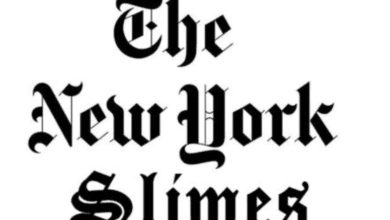Consumer Confidence Slides for Second Straight Month
NEW YORK, Aug. 4, 2011 /PRNewswire/ – Although Congress and President Obama have agreed to raise the debt ceiling, a majority of Americans say that the debate has made them less confident in the nation’s economic recovery. More than half (54 percent) of Americans surveyed say that the debt ceiling debate has made them feel less confident in the economy, and 42 percent say that it has made them less confident in their own finances and investments, according to the August RBC Consumer Outlook Index. The RBC survey was completed immediately before the resolution of the debt ceiling negotiations.
Indicative of Americans’ concern with the state of the country, the number of Americans saying the U.S. is on the wrong track spiked in August to 76 percent, up from 63 percent last month, and the highest rate since July 2008. Only 24 percent of Americans say the country is headed in the right direction.
Confirming the nation’s restive mood, U.S. consumer confidence dropped in August for the second straight month as measured by the RBC Consumer Outlook Index. According to the Index, consumer confidence declined to 40.2 for August, down 3.5 points from the 43.7 reading in July and 6.5 points below the post-recession high of 46.7 in June.
“There is clearly a strong inclination to highlight the wrangling in Washington over the debt ceiling as having weighed heavily on confidence this month,” said RBC Capital Markets chief U.S. economist Tom Porcelli. “However, we would caution against assigning all the blame on this one aspect of the recent backdrop, which to say the least, has been disappointing. We would also highlight the jobs index and the investment index within the overall RBC Index as particularly troubling.”
Although the overall RBC Consumer Outlook Index declined, employment security remained relatively stable in August, with the Jobs Sub-Index falling only 0.8 points to stand at 52.0. While this is down from June’s high-water mark, it remains above the low point for the year. Job confidence also remains stable, as actual experience with job losses fell slightly from last month to stand at 37 percent. This remains the best score on this metric since 2008. However, 31 percent of Americans say they or someone in their household is currently worried about losing their job, up from 25 percent last month.
This month’s drop in the overall RBC Consumer Outlook Index is driven partly by a weaker Current Conditions Sub-Index, which dipped 4.5 points to 28.9, from 33.4 in July. Three out of five Americans (59 percent) say they are less comfortable making a major purchasing decision, such as a home or car, than they were six months ago, which is up from 48 percent last month.
The Investments Sub-Index dropped 4.7 points to 31.8, down from 36.3 in July. Half of Americans (52 percent) think that the next 30 days will be a bad time to invest in the stock market, up from 35 percent last month. The stock market, as represented by the Dow Jones Industrial Average, had lost almost five percent in the days leading up to the RBC survey.
The Consumer Expectations Sub-Index also declined this month to 49.4, down 3.7 points from 53.1 in July. While optimists and pessimists roughly balanced each other out for most of the year, in August, twice as many Americans expect the economy to worsen versus improve (40 percent, versus 18 percent).
After declining for two months, gas prices have reemerged as a major concern for consumers. Pump prices have risen over the last month, and the number of consumers expecting gas prices to rise in the next year has increased to 82 percent, up from 67 percent in July.
With the back-to-school spending season underway, two out of five parents (40 percent) say that they plan to reduce their spending this year because of the economy. The responses are essentially unchanged from a similar question asked a year ago, indicating that the impact of economic conditions is the same.




